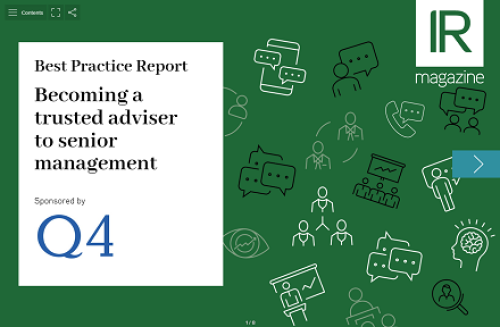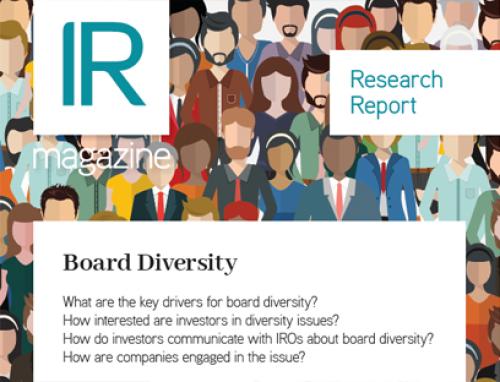Kay Bommer, a lawyer-by-trade, has been general manager of DIRK since 2001, despite stepping down for a few years in 2010. At the time, having been at the helm of the German IR association for a decade, he told IR Magazine that he had become so synonymous with the association that, since ‘Dirk is a German first name… people here call me Dirk Bommer.’
|
Kay Bommer, DIRK |
He also talked about how he came to IR – and DIRK – in the first place. ‘In the late 1990s I moved to a small software company in Hamburg as IR manager. I was new to IR and had no idea what to do. After searching for guidance I quickly found DIRK. After attending a few meetings, I realized I wasn’t alone in my confusion. There were perhaps only 30 IR managers in the whole of Germany at that time. The basic idea of DIRK when it was founded in 1994 was the older chaps would show the younger lads the ropes. I joined DIRK and was later elected onto the board in January 2000. In 2001 the company I worked for became insolvent and I wondered whether I could become general manager of DIRK, a position that at the time didn’t exist.’
What he thought was going to be a ‘two-days-a-week-job’ quickly turned into a full-time position. This year DIRK celebrates 24 years of German IR – something that has become a byword for best practice in investor relations.
What has been the biggest change in IR during the course of your career and how has this shaped the profession?
The shift from a mere communications function towards a strategic management function, where IR collects sentiments from the market and feeds them back into the company, and thus becomes an advisor to the board.
What have been the most positive changes you have seen in investor relations?
IROs have become more professional over the years. Thirty years ago, IR was the ‘new kid on the block‘ and it has come a long way since to become a mature and recognized profession.
What have been the most negatives changes you have seen in IR?
The increasing over-regulation of capital market communications. While it is important that rules and regulations exist to give guidelines and supply guide rails, regulation over the past few years has gone too far – to the detriment of many – not only of IROs.
What advice would you give someone coming into IR today?
Be open-minded. Understand that IR gives you a huge variety of possibilities. From a stepping stone for other jobs to preparation for leading management positions or simply a great, interesting and versatile job with close ties to many parts of your company.
How has technology changed IR as a job? Has this been for the better or worse?
Like virtually all aspects of life, IR has not gone unaffected by technological changes. It has made some things more efficient and easier. Some tasks today can only be done because of technological advancements. However, IR still is – and always will be – a people business. No technology can substitute the necessary personal contact between an issuer and its stakeholders.
What change or changes would you like to see in IR and why?
More CIROs (chief IR officers) at the board level to show the significance and importance of IR.
What do envisage being the most important change the IR industry will face in the future and why?
In times of growing passive investment, some people believe that a quarterly XBRL document is sufficient for good IR or – even worse – some people believe that IR is only about fulfilling legal requirements. In the passive environment it will increasingly become a challenge to ensure that IR retains the positive position it has gained over the last couple of decades.
How has the relationship with investors changed during your career?
As the role of investors has changed over the years, so has the relationship between issuers and investors. For one, investors increasingly see themselves as stewards of their clients – far more so than they did in the past. Further, the fact that not only shareholders, but many more stakeholders, have a say in a company‘s decision making has had an impact on the way relationships with investors have evolved.
If you could pass on one IR lesson from your career, what would it be?
Never hide – even in tough times; never lie – it will haunt you forever; don‘t sell but explain – you are the mediator between the company and its investors, not a salesperson.
As IR Magazine builds up to its 30th anniversary issue – the upcoming winter 2018 issue, which will be the 279th edition of the industry’s flagship magazine – we’ll be posting throwbacks to old covers, revisiting some of the hot topics from the past 30 years of investor relations and hearing from some of the industry titans.
You can look back over old covers and keep track of all things 30th anniversary at our dedicated hub.











